International
DHS official recognizes El Salvador as key ally in combating irregular migration

The U.S. Department of Homeland Security’s Deputy Under Secretary for Public Affairs, Tricia McLaughlin, recognized El Salvador as a key partner in the fight against irregular migration. As part of this partnership, Homeland Security Secretary Kristi Noem will not only tour the Terrorism Confinement Center (Cecot) on Wednesday but will also share details about the CBP Home application, which allows irregular migrants to opt for voluntary departure.
“Our partner countries are incredibly important when it comes to deporting these individuals from our country, particularly criminal foreign nationals. We will also discuss the CBP Home app and how to use it for self-deportation,” McLaughlin told Diario El Salvador during a press conference ahead of Noem’s visit to El Salvador.
Her visit comes just 10 days after the deportation of 238 members of the Venezuelan criminal organization Tren de Aragua, who were placed in Cecot. Additionally, Noem will provide further information on the CBP Home application.
In early March, the Department of Homeland Security (DHS) announced the replacement of the CBP One mobile app—originally designed for asylum applications in the U.S.—with the newly rebranded CBP Home. This free service enables irregular migrants to notify the Trump Administration of their voluntary departure from the United States.
The app provides access to U.S. Customs and Border Protection (CBP) services, allowing migrants to share biographical passport information and location details. According to McLaughlin, migrants who self-deport will not be detained and will have the opportunity to return legally in the future and “live the American dream.”
“The incentive is clear: if they don’t self-deport, we will find them, deport them, and they won’t be allowed to return. Self-deportation is the safest option for undocumented foreigners as it preserves their legal options while allowing CBP to focus its resources on criminal foreign nationals,” she stated.
Central America
Nicaragua revokes legal status of 10 more NGOs, bringing total to over 5,600
The Nicaraguan government canceled the legal status of 10 more non-profit organizations on Friday (March 28, 2025), including the Swiss Foundation for Development Cooperation, bringing the total number of non-governmental organizations (NGOs) shut down since December 2018 to over 5,600.
According to the Ministry of the Interior, the Swiss Foundation for Development Cooperation, which had been registered since March 9, 2002, was found to be in non-compliance for failing to report its financial status for 2024 and for having an expired board of directors.
Among the 10 NGOs whose legal status was revoked were religious organizations, educational groups, consumer associations, and aquaculture organizations, all dissolved “voluntarily” or closed under similar reasons.
As of today, more than 5,600 NGOs have been dismantled following the popular protests that erupted in April 2018 in Nicaragua. In most cases, the assets of these organizations have been ordered to be transferred to the state.
International
Marco Rubio warns Venezuela against military action against Guyana

U.S. Secretary of State Marco Rubio warned Venezuela on Thursday that a military attack on Guyana would be “a big mistake” and “a very bad day for them,” expressing his support for Georgetown in its territorial dispute with Caracas.
“It would be a very bad day for the Venezuelan regime if they attacked Guyana or ExxonMobil. It would be a very bad day, a very bad week for them, and it would not end well,” Rubio emphasized during a press conference in Georgetown alongside Guyanese President Irfaan Ali.
International
Ecuador oil spill worsens as containment dam collapses
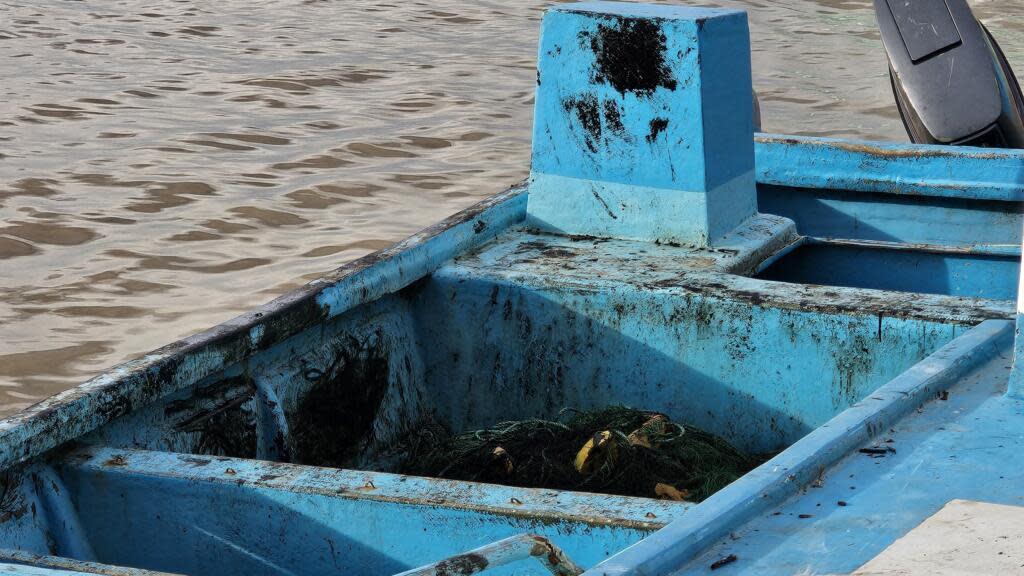
The collapse of a containment dam holding back part of the 25,000+ barrels of oil spilled from a pipeline rupture nearly two weeks ago has worsened the environmental crisis in northwestern Ecuador, contaminating rivers and Pacific beaches.
The Ecuadorian government attributed the March 13 pipeline rupture—which led to the spill of 25,116 barrels of crude—to an act of sabotage. The spill affected three rivers and disrupted water supplies for several communities, according to authorities.
On Tuesday, due to heavy rains that have been falling since January, a containment dam on the Caple River collapsed. The Caple connects to other waterways in Esmeraldas Province, a coastal region bordering Colombia, state-owned Petroecuador said in a statement on Wednesday.
Seven containment barriers were installed in the Viche River, where crews worked to remove oil-contaminated debris. Additional absorbent materials were deployed in Caple, Viche, and Esmeraldas Rivers, which flow into the Pacific Ocean.
Authorities are also working to protect a wildlife refuge home to more than 250 species, including otters, howler monkeys, armadillos, frigatebirds, and pelicans.
“This has been a total disaster,” said Ronald Ruiz, a leader in the Cube community, where the dam was located. He explained that the harsh winter rains caused river levels to rise, bringing debris that broke the containment barriersthat were holding the accumulated oil for extraction.
-
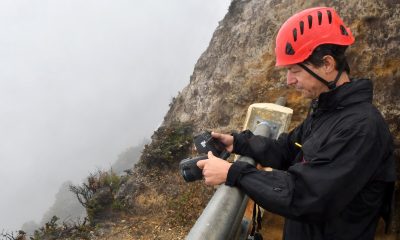
 Central America4 days ago
Central America4 days agoCosta Rica’s Poás volcano on orange alert amid rising magma activity
-

 International4 days ago
International4 days agoDHS Secretary Kristi Noem to meet with Mexico’s President Claudia Sheinbaum on friday
-

 International2 days ago
International2 days agoFederal court blocks Trump’s use of Enemy Alien Act for deportations
-

 International4 days ago
International4 days agoMaduro urges UN to intervene for venezuelan migrants detained in El Salvador
-

 International4 days ago
International4 days agoCanada updates U.S. travel advisory amid immigration policy changes
-

 International4 days ago
International4 days agoLula meets Japan’s emperor as Brazil seeks stronger trade ties
-

 International4 days ago
International4 days agoTrump’s tariff decree disrupts venezuelan oil exports to China
-

 Central America2 days ago
Central America2 days agoKristi Noem in Latin America: Talks with Bukele on expulsions and security policies
-
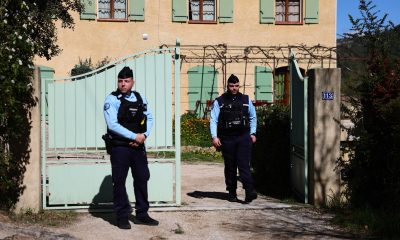
 International4 days ago
International4 days agoMystery deepens in Émile Soleil case as family members are arrested
-
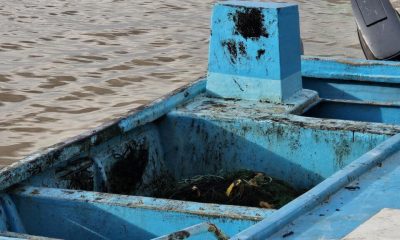
 International2 days ago
International2 days agoEcuador oil spill worsens as containment dam collapses
-

 Central America2 days ago
Central America2 days agoHonduran group in U.S. pushes for voter registration to prevent election fraud
-

 International4 days ago
International4 days agoU.S. Homeland Security Chief tours Latin America as deportation policy sparks tension
-

 International4 days ago
International4 days agoTech industry shocked by sudden death of Samsung executive Han Jong-hee
-

 Central America2 days ago
Central America2 days agoNicaragua denounces Costa Rica’s position in SICA as aligned with foreign interests
-

 International4 days ago
International4 days agoForensic genealogy uncovers identity of woman found in California in 1966
-
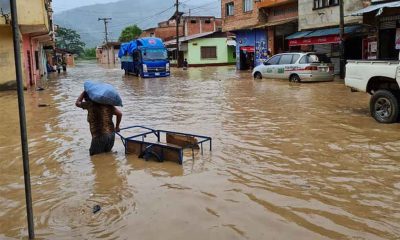
 International4 days ago
International4 days agoBolivia declares disaster in 90 municipalities as heavy rains continue
-

 International4 days ago
International4 days ago23andMe declares bankruptcy amid data breach fallout and declining sales
-
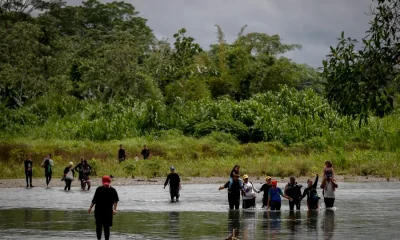
 Central America2 days ago
Central America2 days agoPanama’s president declares Darién gap ‘closed’ amid sharp drop in migrant flow
-

 Central America2 days ago
Central America2 days agoNicaragua’s new judicial law consolidates power in Ortega and Murillo’s hands
-

 International2 days ago
International2 days agoMarco Rubio warns Venezuela against military action against Guyana
-

 International4 days ago
International4 days agoMexico to launch National Identity Platform to aid in missing persons search
-
Central America9 hours ago
Nicaragua revokes legal status of 10 more NGOs, bringing total to over 5,600















